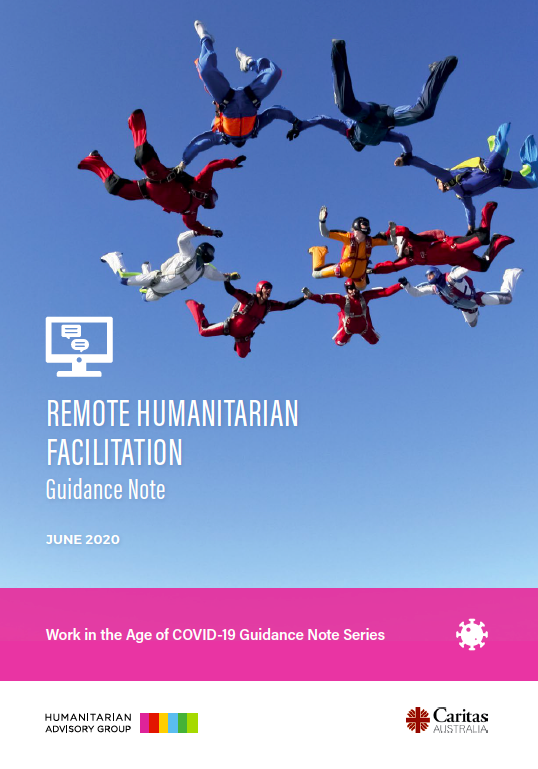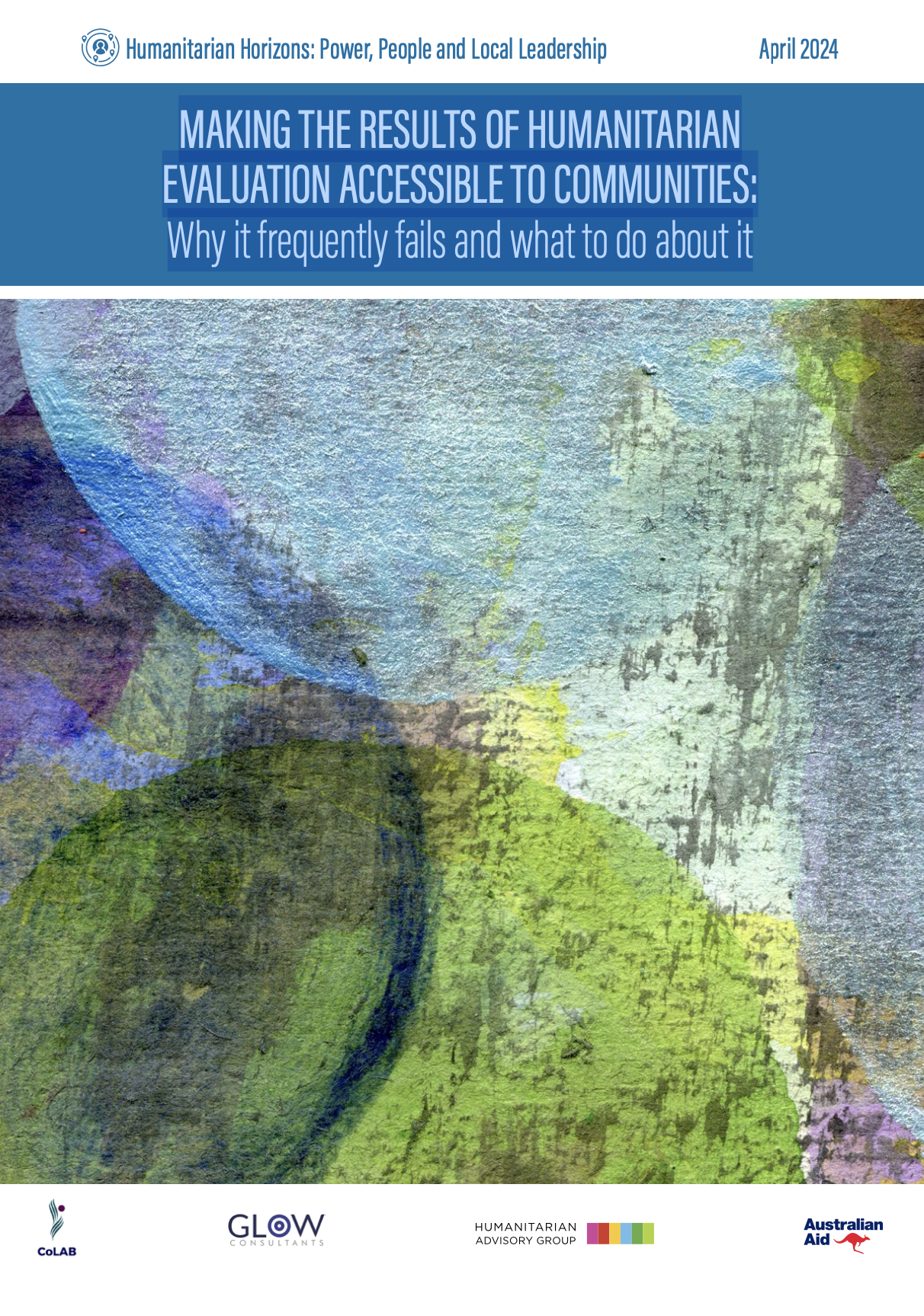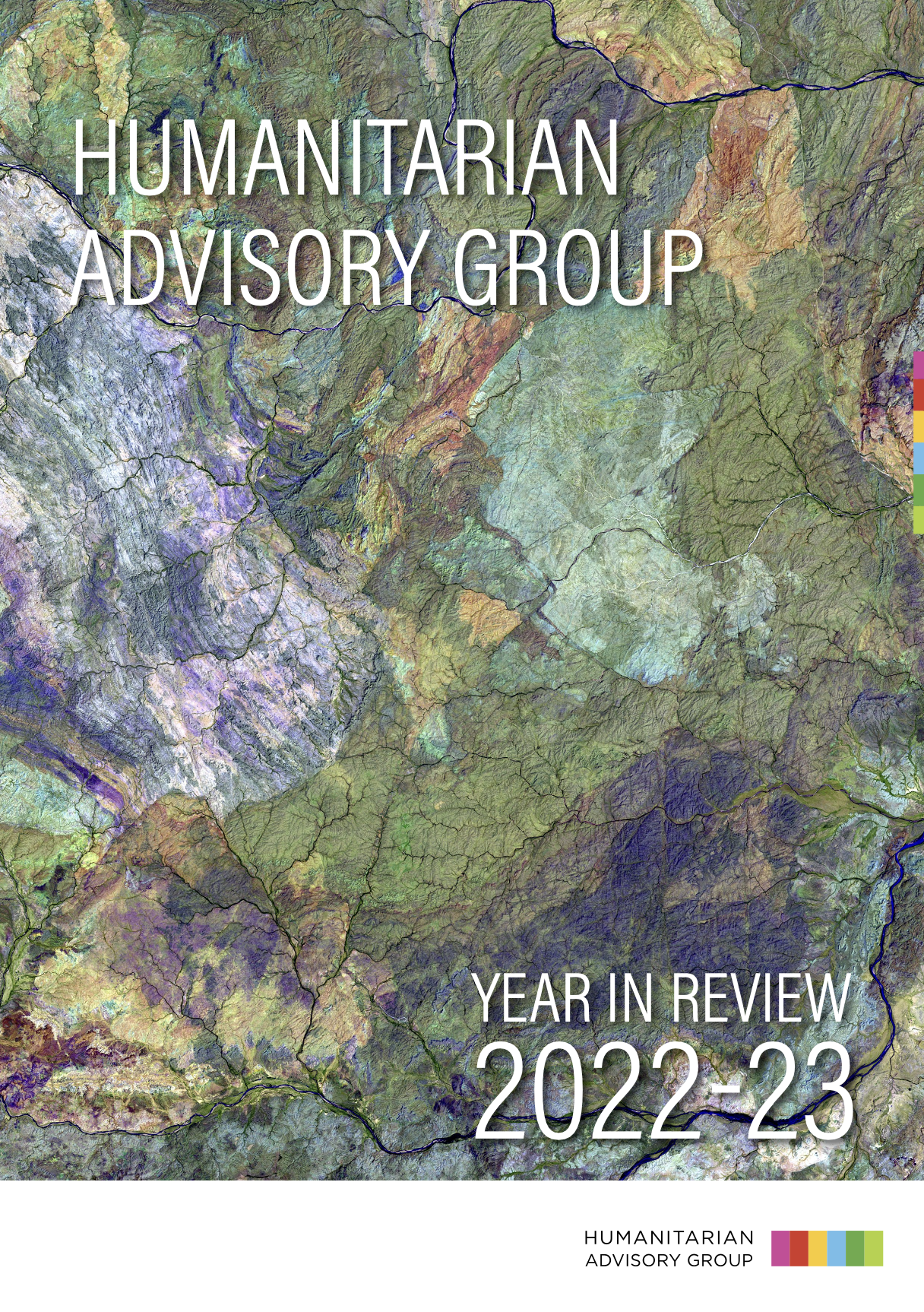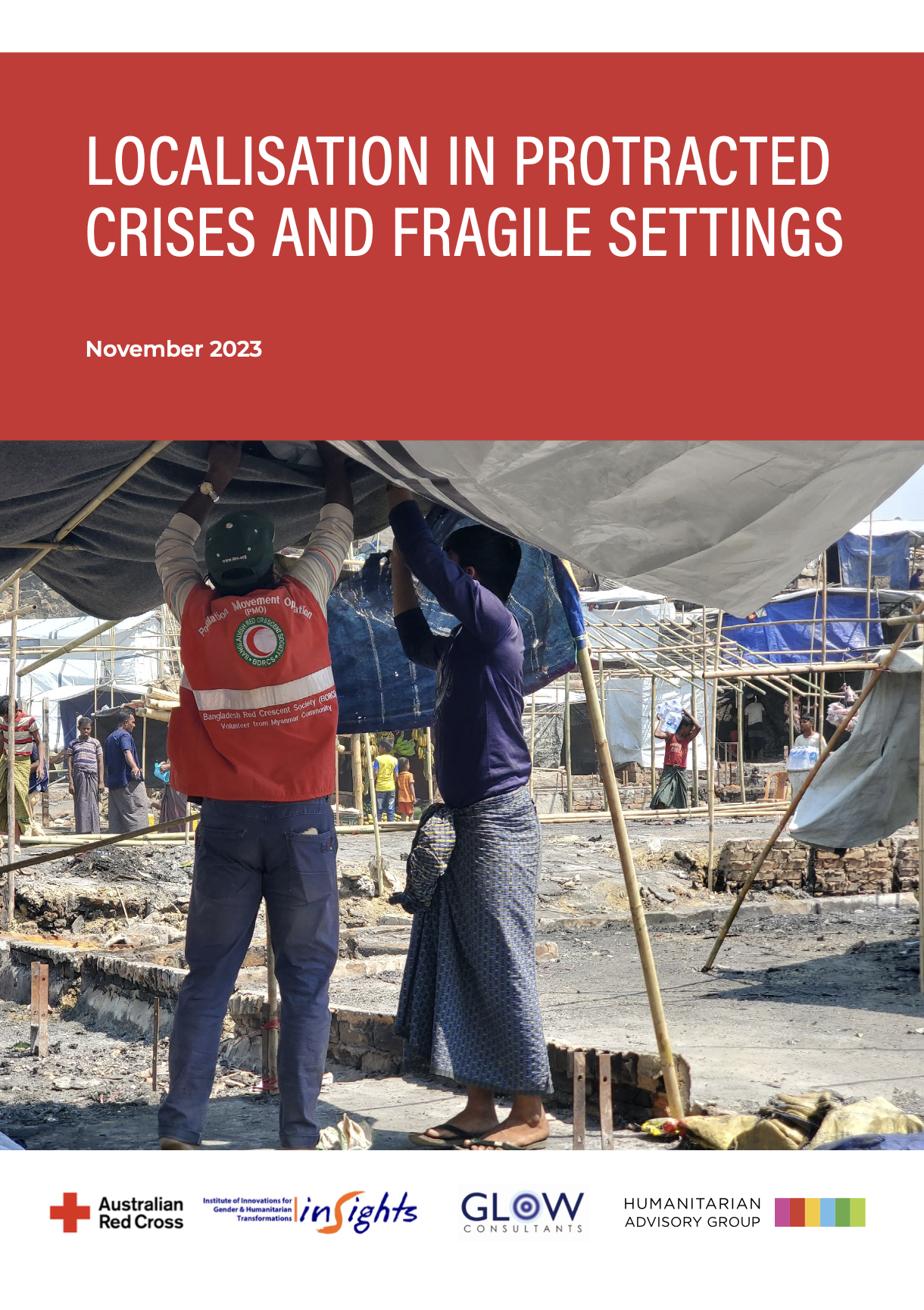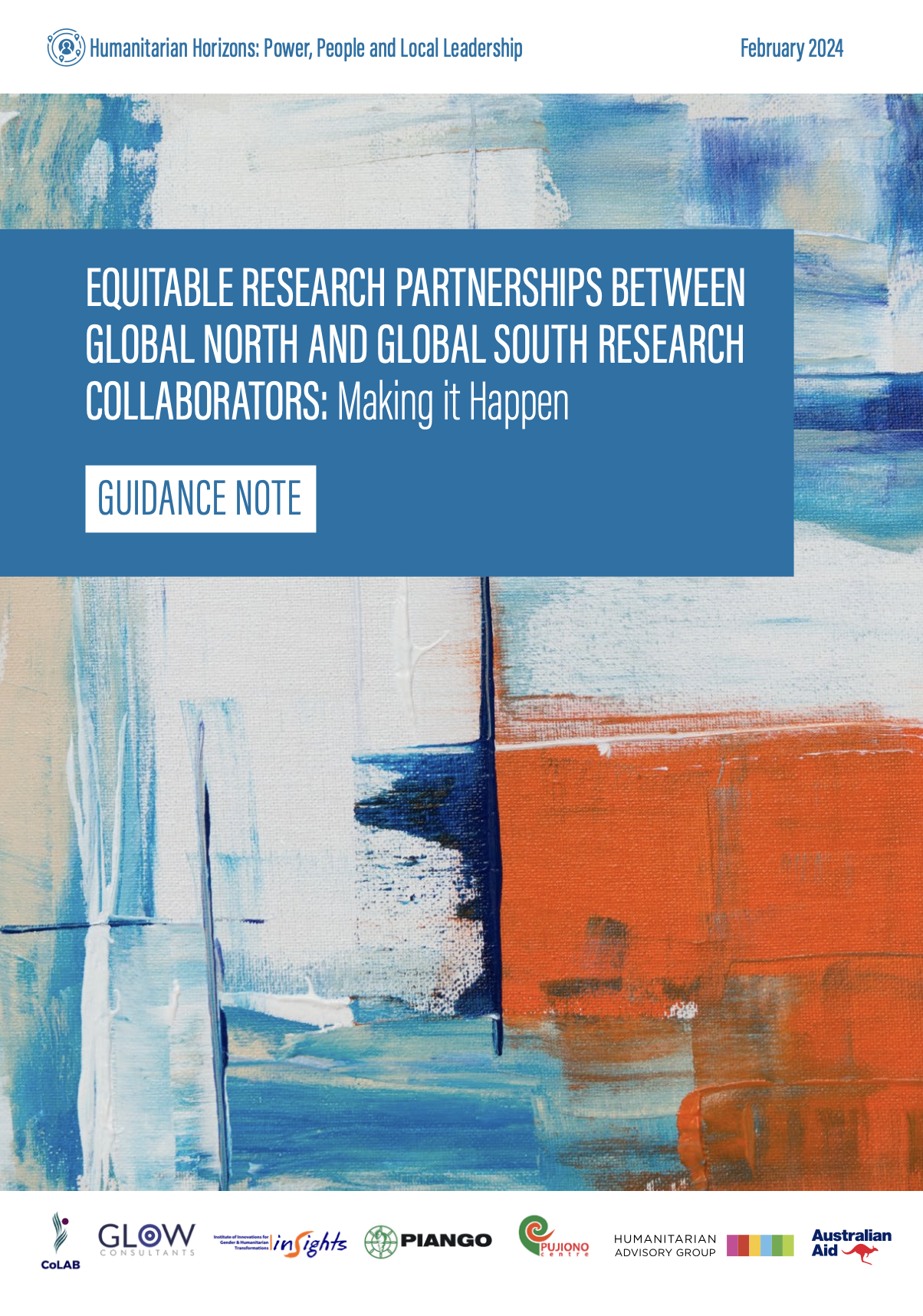Overview
COVID-19 has triggered a surge in online communication, with remote working and remote management becoming the new norm for most industries and businesses. Humanitarian practitioners have adapted to this new reality, using technology more than ever to communicate, collect and use information in order to design, manage and evaluate aid projects.
Workshops, consultations, group discussions, team meetings, brainstorming sessions and other formal and less formal facilitated discussions are now happening online, raising questions of security, access to new technologies, and the practicalities and effectiveness of remote facilitation compared to face-to-face facilitation in various contexts. This note is intended to guide international and national operational actors on how to adapt and think about remote facilitation in the context of, and after, COVID-19.


